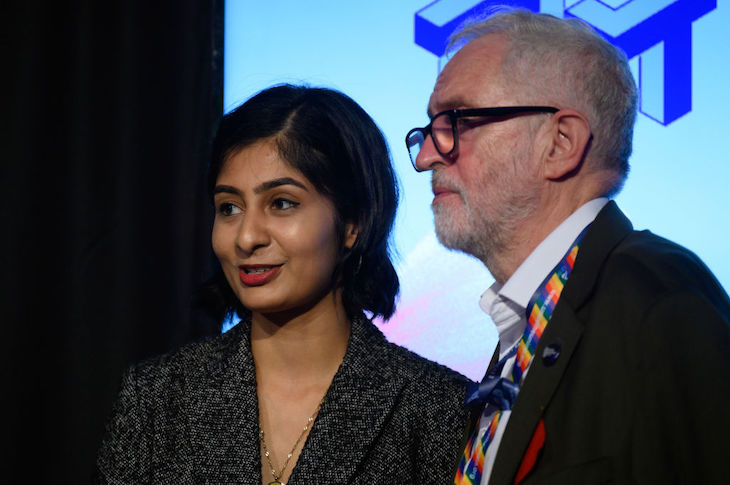The much loved and quintessentially French singer, Françoise Hardy, born in 1944, died last night. French certainties are disappearing. The Fifth Republican regime could be next. President Macron’s stunning decision on Sunday night to dissolve the National Assembly in the wake of the remarkable victory of the Rassemblement National (RN) in the European elections is likely to turn a political crisis into a crisis of regime.
Following Macron’s 2022 re-election, devoid of a working majority, France entered a slow-building crisis. The fall-out continues to contaminate the political life of the country. After the agonising demise of the Socialist party, yesterday saw the implosion of the Republican party, the Gaullists who gave France the hitherto stable institutions of the Fifth Republic and four presidents. Its leader, Eric Ciotti, broke the taboo of no collusion with the ‘far right’, by sealing an agreement with the RN, which has enraged the party’s hierarchy, though not grass roots members.
France is at a political, institutional, financial, psychological cross-roads
The stabilising effect of alternating between the historic Gaullist and Socialist parties will be well and truly buried by the time of the second round of the 7 July snap election. The European elections saw over 50 per cent of votes cast for non-traditional parties, that Macron classified as ‘extremist’ in his press conference today. It is an irony of ironies that in the 65th anniversary of the 5th republic, France will have reverted to the political instability and stagnation of the 4th republic.
A Harris Interactive poll yesterday put the RN on 34 per cent, with the revived left-wing Nupes broad church alliance ‘Popular Front’ in second place on 22 per cent and Macron’s centrist grouping in third place on 19 per cent. At a pinch, that could translate into an absolute majority of seats for the RN given the multiplier effect of the two round majority voting system for the winners. The RN came first in 96 of 101 French departments. An analysis of seat distribution put the RN as the largest party within a broad range up to an overall majority. But this was before the deal with the Republicans.
So what would either of these scenarios lead to for France? In both, President Macron would appoint Jordan Bardella as prime minister, even though the constitution does not specify that the appointment be made from the largest party (leaving lee-way for Macron to be even more iconoclastic).
Yet even with a working majority, the RN would have great difficulty implementing its stated policies. This would be no benign ‘cohabitation’ of the past. First, the RN’s flagship policy of holding a referendum on immigration will require presidential consent. Given Macron’s stated opposition this would be dead in the water. Foreign and defence policy are presidential prerogatives and therefore RN policy on Ukraine and the EU would be stymied. The Bardella government would have to settle for domestic policies around law and order, notably returning illegal immigrants, although this carries a foreign policy dimension.
Without a working majority, the picture is more one of stalemate and parliamentary chaos akin to the last two years, but far worse with a fired up Nupes2 contingent in the National Assembly. The scene is likely to be one of repeated censure motions, as the government will likely resort to using the constitutional device article 49.3 to press through legislation without a vote. The greatest of these will be on the budget. The RN’s reforms are costed by the Institut Montaigne (a centre-right think tank) at some €100 billion (£84.3 billion), much of which is as yet unfunded, driving up France’s vertiginous debt.
The upshot of either scenario will be panic in financial markets, witnessed yesterday with a selloff in French debt and a widening of French ‘spreads’. The French Bourse plunged. France’s large and small business community has already confessed its anxiety, while stating that it would nevertheless prefer an RN government to the left-wing ‘Popular Front’ alternative.
Some of this will be used by opponents as a French ‘Project Fear’. But panic is beginning to consume even the Macronists about their leader’s decision to dissolve the government. And many are beginning, sotto voce, to signal that it is he who is the problem, by requiring that election posters for their constituencies do not feature his photograph.
France is at a political, institutional, financial, psychological cross-roads. The certainties that held French society together for four generations are disappearing. What it will look like in the coming years is an enigma.








Comments